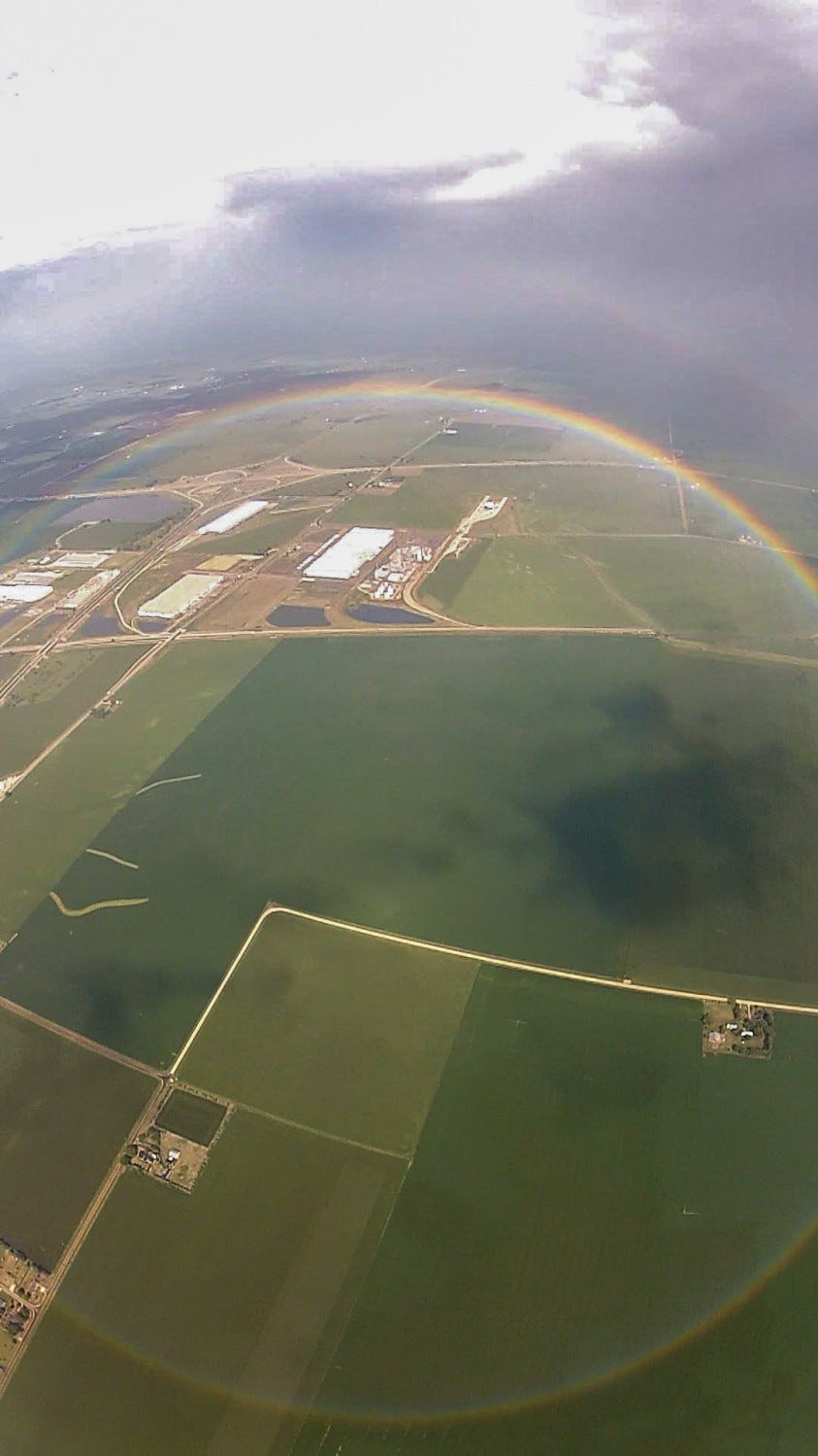
“Every new beginning comes from some other beginning’s end” — Seneca
There is no pot of gold at the end of the rainbow, not even at the beginning. Rainbows are complete circles. Our view from the ground is limited, so we only see the rainbow as an arc. From the air, however, observers can occasionally see full circular rainbows. Only when we change our perspective, do we see the complete picture. Changing what we see requires new knowledge, which leads to fresh insights. That is the goal of the Thursday Thought newsletter and is a red thread through all of my work where I share the brilliant perspectives of the guests on The Innovation Show. New ideas inspire new thoughts. New thoughts encourage new behaviours. New behaviours stimulate new personal realities. A change in personal reality leads to new personalities. This Thursday Thought is about reframing endings as we come to the end of 2022.

“All changes, even the most longed for, have their melancholy, for what we leave behind us is a part of ourselves; we must die to one life before we can enter into another.” — Anatole France (1844–1924)
French poet, journalist, and novelist Anatole France recognises how every change elicits a shudder of sorrow and an echo of melancholy. Many people decide to move on to a new career and reinvent themselves at this time of year. We must remember that it is normal to experience a form of remorse, wondering if we made the right choice. This is particularly the case with a significant change like a jump from the relative security of a role in a large organisation to the terrifying excitement of an entrepreneurial pursuit. A step forward always begins with a step backwards, just as spring begins with winter.
In Western traditions, we think of time in terms of past, present, and future. The arrow of time moves from left to right: we are born, we live, and we die. In Eastern philosophies, time is cyclical; everything is evolving. This perception of time is core to the permanent reinvention mindset. When we reframe life as a series of cycles, we reframe experiences from the past as fuel for the future; setbacks become lessons and what we consider broken become foundations for the future.
Reframing endings is a lens we can apply to a variety of phenomena. Careers can be in spring as you embark on a new one; or in winter as you end another. Relationships naturally encounter autumns and winters. These seasons occur at different times, unique to each of us. For example, if you have children, the children rightfully become the focus of your energy. They enjoy your spring. Just because your relationship confronts an autumn does not mean it is the end; it is just at a different stage of its perpetual life cycle. Numerous animals hibernate in winter to replenish their energy for the coming spring.
I find this a valuable way to perceive various aspects of life. I reframe lives as a portfolio of seasons, a kaleidoscope or simultaneous evolutions, each at a different stage in its life cycle. If some aspect of our life is in bleak winter, perhaps it needs new energy; perhaps it just needs to recharge.
For organisations, this cyclical mindset is a helpful way to manage transformation and reinvention initiatives. When we reframe the organisation as a living entity, we see that it is also in a continual process of becoming. We should also consider that growth needs to pause occasionally, just as nature pauses in Winter to refuel for Spring. Introducing a new business model may mean a dip in an ageing one. The beginning of a new career is the end of an old one. For anyone struggling with change, remember that Winter always precedes Spring.
Happy New Year